platform regulation
Filter by...
-

Scroll more, sleep less. A Black Mirror-inspired truck in Warsaw advertises a disturbing social network… that doesn’t exist
Panoptykon’s campaign is being launched after the DSA has become fully effective with regard to VLOPs on 25 August. To comply with the new regulation, cybergiants must, among other things, introduce changes concerning their additive algorithms which they use to personalise users’ feeds. They must now explain how those algorithms work and offer at least one recommender system not based on tracking users’ personal data.
Read more
-
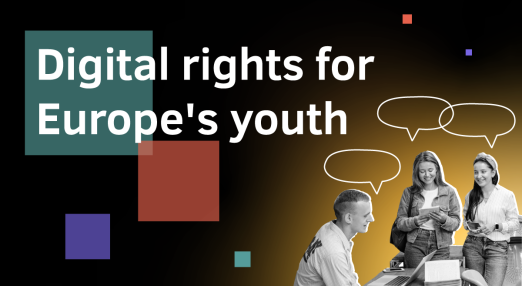
Digital rights for Europe’s youth
The biggest youth platform in the world is joining the Platform Power Coalition for a Digital Services Act that empowers young people. European Youth Forum will bring youth voices to the coalition, vindicating that digital rights are youth rights. Young people should be able to enjoy their digital environment without fearing privacy violations, discrimination or manipulation. Here is what you need to know about this alliance.
Read more
-

Consumer and digital groups in Europe and the U.S. call for a full ban on surveillance-based advertising
On 1 June, the Transatlantic Consumer Dialogue (TACD), that EDRi is part of, published a policy resolution on banning surveillance-based advertising. The invasive practices of collecting, sharing, and processing of individual data to deliver personalized advertising, has become the primary business model in the online advertising space. Surveillance advertising is promoted by the world’s largest technology companies, like Meta (Facebook) or Alphabet (Google), and is a key driver behind the spread of misinformation, undermining democratic discourse, economic and political equity, marketplace competition, privacy, public health, and basic consumer protections.
Read more
-

Twitter Has a New Owner. Here’s What He Should Do
Elon Musk’s purchase of Twitter highlights the risks to human rights and personal safety when any single person has complete control over policies affecting almost 400 million users. And in this case, that person has repeatedly demonstrated that they do not understand the realities of platform policy at scale.
Read more
-

What you need to know about the Facebook Papers
Facebook is now undergoing what may be the tech giant’s biggest crisis in its 17-year history. In October, The Washington Post reported that a second Facebook whistleblower came forward to the U.S. Securities and Exchange Commission, alleging that the company prioritises growth over combating hate speech, disinformation, and other threats to the public. The whistleblower’s testimony follows that of former Facebook employee Frances Haugen, whose legal counsel released what’s known as the Facebook Papers — a 10,000-page collection of internal reports, memos, and chat logs leaked to more than a dozen major news outlets.
Read more
-
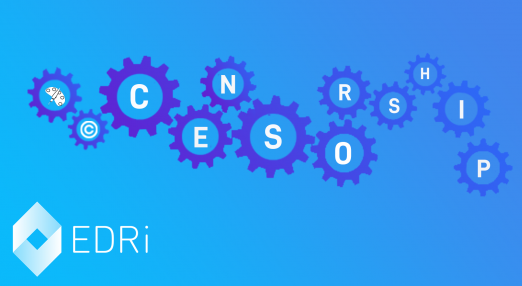
European Commission ignores civil society concerns and sides with creative industries
Today is a sad day for Europe. Instead of listening to reason and arguments, the European Commission itself brought up in front of the CJEU, the backroom political influence of the entertainment industry has won once again. Clearly “earmarking” content means preferring the economic interests of a few powerful actors over the fundamental rights of a whole generation.
Read more
-
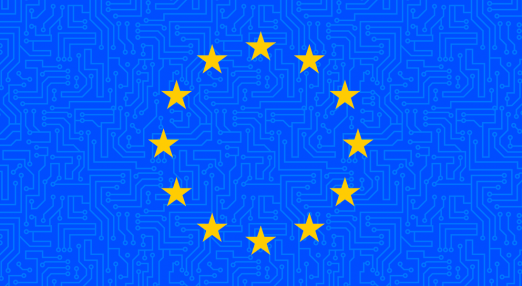
DSA Proposal: Recommendations for the EU Parliament and Council
The Digital Services Act (DSA) is a mixed bag with some promising proposals, shares EDRi's member Electronic Frontier Foundation (EFF). In their "Recommendations for the EU Parliament and Council", they take a closer look at the substance of the DSA proposal and propose concrete suggestions for improvements.
Read more
-

How Austria wants to implement upload filters and ancillary copyright
EDRi's member epicenter.works sheds light on the Austrian implementation of the controversial Copyright Directive passed in the EU Parliament in 2019. As positive as some draft provisions regarding upload filters are, the Austrian implementation of ancillary copyright is poor.
Read more
-

Delete first, think later
The proposed Digital Services Act wants to push online platforms to quickly remove illegal content. But it uses a sledgehammer on a most intricate challenge: moderating online speech. The result would crush freedom of expression instead of enabling it. This is the second blog post in a new series dedicated to the EU’s proposed Digital Services Act and Digital Markets Act.
Read more
-
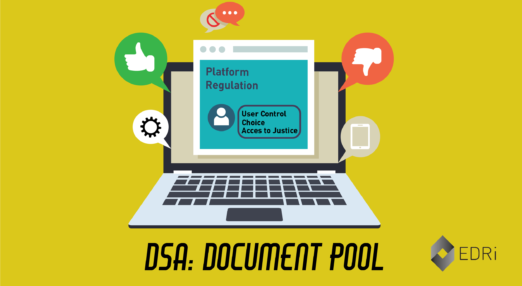
Digital Services Act / Digital Markets Act: Document pool
The DSA-DMA package will affect how intermediaries regulate and influence user activity on their platforms, including people's ability to exercise their rights and freedoms online. It also aims at limiting the abuse of power by very large and gatekeeper platforms.
Read more
-
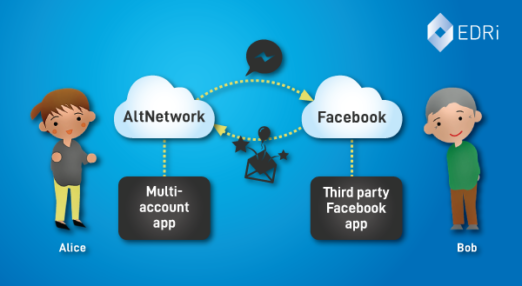
Interoperability: A way to escape toxic online environments
The political debate on the future Digital Services Act mostly revolves around the question of online hate speech and how to best counter it. Whether based on state intervention or self-regulatory efforts, the solutions to address this legitimate public policy objective will be manifold. In its letter to France criticising the draft legislation on hateful […]
Read more
